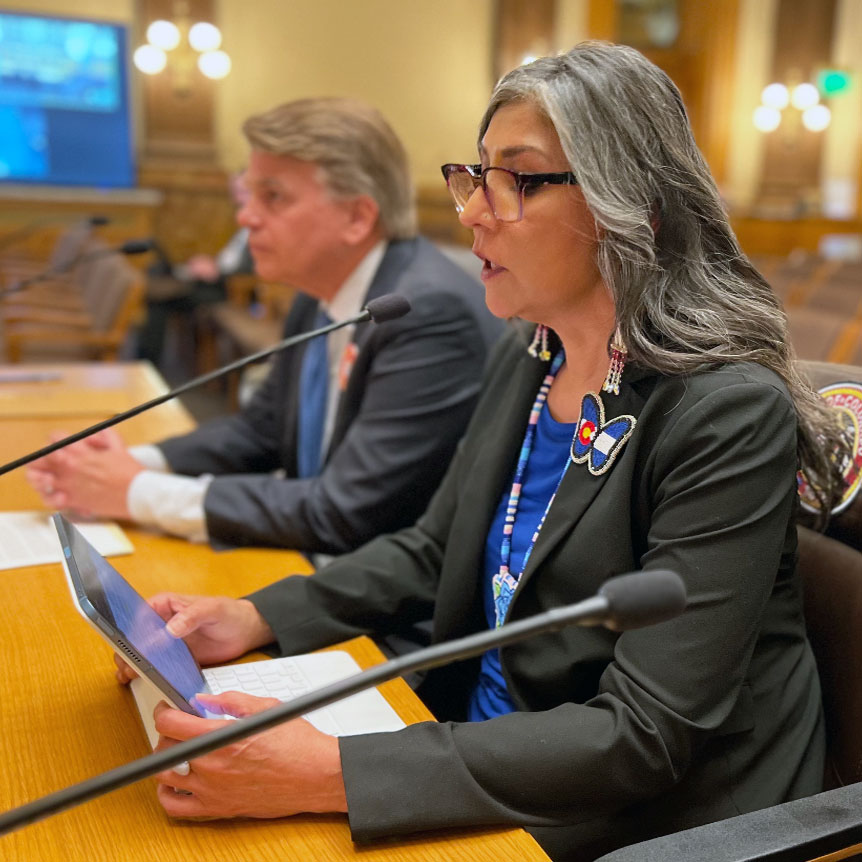Vice Chairman Lorelei Cloud testified before the Colorado Senate State, Veterans, and Military Affairs Committee at the State Capitol in Denver this afternoon. Cloud urged the Committee to support Senate Bill 24-193: Protect Tribal Lands from Unauthorized Annexation. This critical legislation is in response to the City of Durango’s attempt to seize Reservation land from the Southern Ute Indian Tribe for the economic benefit of the City.
The Utes are the oldest continuous inhabitants of what is now the State of Colorado. The Utes are resilient and have endured assimilation, relocation, and seizure of their land and culture for far too long. The Reservation was established by successive treaties and was to be “set apart for the absolute and undisturbed use and occupation of the [Utes]” and “no persons … shall ever be permitted to pass over, settle upon, or reside” on those lands. The City’s actions take direct aim at these promises.
The Southern Ute Indian Tribe, a strong neighbor, proven business partner, and significant investor in the local economy, will fiercely defend its land status, sovereignty, self-determination, and cultural heritage. Vice Chairman Cloud cautioned that annexation will further complicate matters such as law enforcement, air and water quality, and environmental regulation, stating, “complexities with the federal, state, and local jurisdiction make it difficult. Adding another layer – especially a city with no interest in cooperation and a history of failing to consider the Tribe at all – only puts my people and culture at greater risk. This is unacceptable.”
Senate Bill 24-193 offers a vital safeguard for the Southern Ute Indian Tribe’s land and future. Respecting the Tribe’s sovereignty and culture is not just a matter of honoring past treaties, but a step towards a more collaborative relationship. The Tribe stands ready to work with the State to find solutions, but the City of Durango’s actions threaten to unravel years of progress. By supporting this legislation, Colorado can ensure a future built on mutual respect and understanding.

